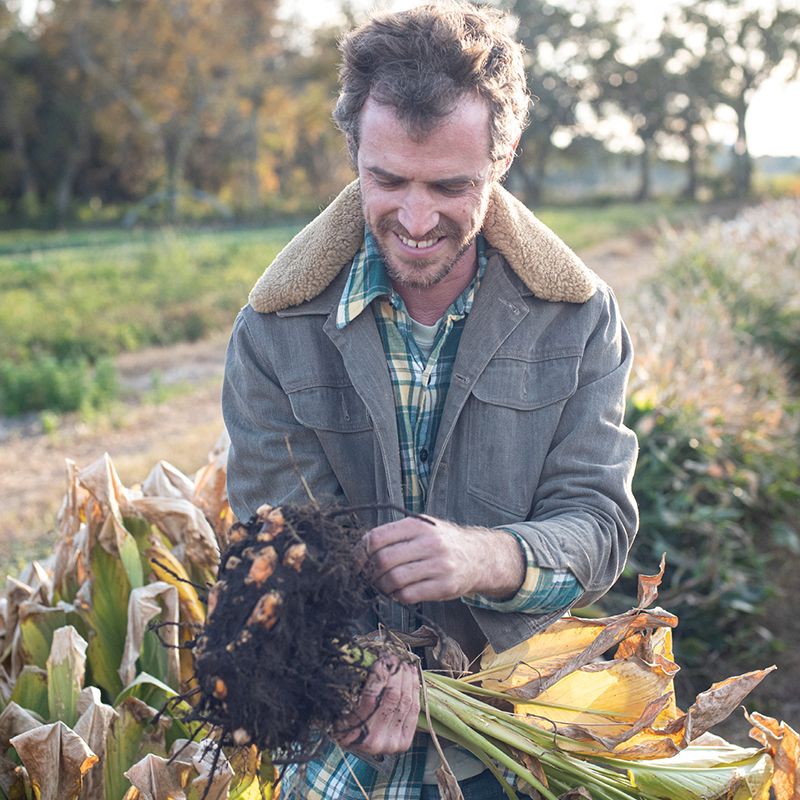How John Warren, and his farm Spade & Clover, became a Lowcountry chef favorite

CM: You started Spade & Clover in 2011 through Lowcountry Local First’s incubator program. What has your farm come to symbolize since then?
JW: The ethos behind Spade & Clover is captured within the name itself. The spade is a tool that hints at effort, skill, and technique, while the clover is a cover crop that symbolizes luck. The spade and club are also obviously playing cards and farming is, at its core, a form of gambling.
CM: How does our semi-tropical climate factor into what you do?
JW: A lot of farmers use the summer as their heavy harvest time, but I like to use it to focus on winter crops. Sweet potatoes, turmeric, and root vegetables (large radishes, carrots, beets, and rutabagas) can be stored for a long time without their greens. Since you can grow pretty much anything here year-round, the climate offers me plenty of options to work in the winter, which I prefer.
CM: Charleston chefs love what you do. How did you establish yourself in the food community?
JW: Initially, I was very flexible with what I would grow. I wasn’t really doing the math on how some of these obscure vegetables priced out, but I learned that chefs were pretty open and would buy standard stuff, such as Napa cabbage, if I was willing to experiment with rarer, riskier crops, like Tokyo Bekana—the more delicate, Japanese cousin to Napa cabbage. We have French breakfast radishes, arugula, kale, cabbage, and radicchio as our staple sellers, and if chefs give me a sense that they’ll order something more than once, I can begin to contemplate incorporating it into my broader crop plan.
CM: Evan Gaudreau (Renzo’s former executive chef) recently joined your farm. Why do you think chefs are drawn to that hands-on experience?
JW: It allows them to understand the scale and difficulty of the work we do. They also can offer new ideas and give me a better sense of what they can use. Farming changes the way you see the world, but it takes a while to sink in. I think Evan’s expanded view of what it means to derive nourishment from the earth will distinguish him as his career develops.
CM: What’s a lesser known vegetable you grow, native to the Lowcountry?
JW: Many of the ingredients people associate with traditional Southern cooking, like collard greens and rice, are imported. We grow sunchokes, which are one of the only crops truly native to this area.
CM: What will you have on the farm in January?
JW: Hearty leafy greens—think kale, collards, radicchio, cabbage. And then of course we’ll have root vegetables like carrots, beets, and radishes. Really anything that can burrow in the ground and protect itself against the cold.
CM: What does 2020 hold for Spade & Clover?
JW: I’m trying to expand the CSA program and find more ways to efficiently sell vegetables directly to individual consumers. I want to get to the point where I harvest everything that is available on the farm, put my inventory on the website, and give customers the ability to purchase individual vegetables. That’s the dream.
Photographs courtesy of (catfish) Edmund’s Toast